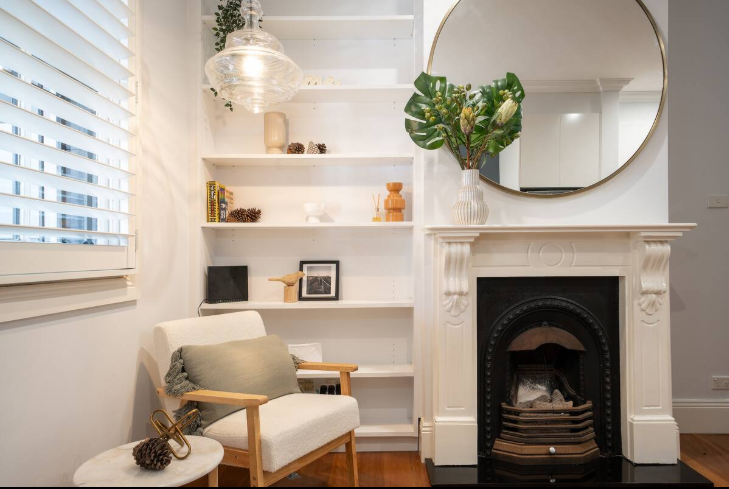
NSW Rental Law Changes 2024–25: What Airbnb & Short-Term Rental Owners Need to Know
Key NSW Rental Law Reforms at a Glance
Introduced under the Residential Tenancies Amendment Act 2024, the new laws rolled out between October 2024 and May 2025. They target standard residential leases of 90+ days, but hybrid landlords should pay close attention.
-
No-grounds eviction ban (from 19 May 2025) – you must have a valid legal reason to end a tenancy.
-
Rent increase cap (from 31 Oct 2024) – rent can only be raised once every 12 months.
-
Pet-friendly defaults (from 19 May 2025) – tenants can keep pets unless there are clear legal grounds to refuse.
-
Ban on application fees – no charging for applying, screening, or lease signing.
-
Fee-free payment option required – you must offer tenants a free rent payment method, like bank transfer.
Do These Laws Apply to Airbnb & Short-Term Rentals?
For most Airbnb properties in Sydney and NSW, tenancy laws don’t apply if the rental is less than 90 days. However, there are exceptions:
-
Hybrid landlords (switching between long-term and short-term rentals) must comply with tenancy rules for leases over 90 days.
-
Mid-term rentals (3–6 months) risk triggering tenancy laws if the stay exceeds 90 days.
-
STRs remain governed by the NSW Short-Term Rental Accommodation (STRA) Code of Conduct and local council limits (e.g., the 180-day cap in Greater Sydney).
If you’re unsure, always check your council’s STR regulations and register with the NSW STRA portal where required.
How the New Laws Affect Property Strategy
1. No-Grounds Evictions Are Gone
Want to switch your property back to Airbnb in summer? You can no longer just end a lease “because you want to.”
-
Before: Landlords could terminate without reason.
-
Now: You need legal grounds such as selling, moving in, or major renovations.
-
Impact: Less flexibility for landlords who seasonally switch between long-term and STR.
Tip for Airbnb hosts: Use fixed-term leases that expire before your preferred Airbnb rental season.
2. Rent Increases Limited to Once Per Year
While there’s no cap on the amount, rent can now only be increased once every 12 months.
-
Before: Increases could happen every 6 months.
-
Now: Just once per tenancy, per year.
-
Impact: Long-term rental income grows more slowly.
STR Advantage: Airbnb allows dynamic nightly pricing, letting you adjust rates daily to match demand — especially during peak travel seasons in Sydney.
3. Pets Are the New Normal
Tenants can now request pets by default. If you don’t respond within 21 days, approval is automatic.
-
Before: Pets could be banned outright.
-
Now: Refusals are only allowed on legal grounds.
-
Impact: Long-term landlords must pet-proof their homes.
Airbnb Advantage: As a host, you control your pet policy. You can choose to allow pets (and charge a cleaning fee) or keep your property pet-free.
Compliance Checklist for Hybrid Hosts
If you operate both long-term and short-term rentals in Sydney, here’s how to stay compliant:
-
✅ Use fixed-term leases that end before STR season.
-
✅ Keep evidence if ending leases for legal grounds (e.g., renovation approvals).
-
✅ Respond to pet requests within 21 days.
-
✅ Offer at least one fee-free payment option.
-
✅ Track rent increases (only once per year).
-
✅ Avoid illegal tenant fees in lease documents.
-
✅ Register your property on the NSW STRA portal if required.
Penalties for Breaking the Rules
The new laws are being actively enforced by NSW Fair Trading. Non-compliance can be expensive:
-
$5,500+ fines for illegal tenant fees or wrongful pet refusals
-
$11,000+ fines for unlawful evictions
-
Up to $71,500 for company landlords
Future Rental Reforms to Watch
Looking ahead, property investors should prepare for:
-
Late 2025: Portable bond scheme, allowing tenants to transfer bonds between rentals.
-
Potential changes: Justifications for rent increases and new energy efficiency requirements.
Why More Landlords Are Choosing Airbnb in Sydney
With tighter controls on long-term rentals, many property investors are turning to short-term rentals on Airbnb to protect flexibility and maximise returns.
At My Air Host, we make the process simple with:
-
Free rental appraisals – compare Airbnb vs long-term income.
-
Dynamic pricing tools – maximise nightly rates.
-
Full-service management – bookings, cleaning, and guest support.
-
Regulation guidance – we help you navigate council caps and STR rules.
-
️ Owner flexibility – block out dates for personal use anytime.
Final Word: Stay Compliant, Stay Profitable
The NSW rental law changes 2024–25 make long-term leasing more restrictive. But Airbnb hosting in Sydney remains a flexible, profitable option for landlords.
With My Air Host, you can:
-
Stay fully compliant
-
Maximise your rental income
-
Enjoy stress-free hosting
Contact My Air Host Sydney today for a free rental appraisal and see how much your property could earn as a short-term rental under the new laws.

